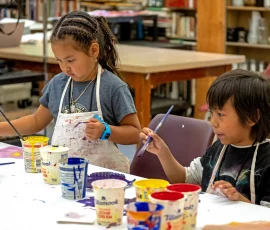Grants are a critical source of funding for many nonprofits. They’re not the biggest source of funding. Not by a long shot. Individual donations comprise nearly 71 percent of charitable giving according to Giving USA. Still, grants are important—too important to miss out on by making preventable mistakes.
I routinely see hard-working, well-meaning, inspired and committed professionals in the nonprofit sector miss in their attempts to seek funding from foundations. Grant proposals are denied for many reasons, but often failure to secure a grant comes from avoidable missteps. Below I’ve compiled a list of some common errors. By sidestepping these mistakes, you’ll improve your odds of receiving grants and furthering the mission of your organization.
Ten Common Mistakes of Grantseekers
- Proposing a project that moves the organization away from its core mission or expertise. This is usually done unintentionally. An organization creates a new project or initiative that may have merit but distracts the organization from what it does best. Make sure your projects are tied to your core cause and competencies.
- Having an underdeveloped board. Perhaps the board is young and evolving and doesn’t yet fully own the organization’s mission, programs and finances. Or perhaps its members aren’t giving to the ongoing operations, the special project or both. This can often be a red flag for foundations.
- Having leaders who are unprepared or ill-suited to lead the organization or to implement and complete the proposed initiative.
- The proposed project has merit but is not the priority of the CEO or organization and is therefore at risk of being sidelined or underfunded and never completed.
- Not having an established and stable business model (a steady source of revenue) sufficient to support the organization’s new initiative.
- Not having enough cash on hand and organizational reserves to sustain the organization through the implementation of the proposed new venture.
- Lacking the internal capacity or infrastructure to support the planned project.
- Having a poorly planned or poorly timed project (including the means to sustain it).
- Failing to right-size a project (and the corresponding level of funding requested) to fit your organization’s budget, revenue base, capacity and infrastructure.
- Relying too heavily on a relationship. On occasion, project planning is influenced by misplaced confidence in one’s chances for success based on a conversation or a connection with a foundation staff member or trustee.
Organizations don’t need to be perfect or at full maturity in their operations before approaching the Murdock Trust with a new initiative or project. The Murdock Trust is not perfect either, and we don’t expect those with whom we partner to be without challenges, growing edges or soft spots. We do, however, expect nonprofits to be active stewards of their missions, to give attention to the fundamentals of their organization and proposed initiative and to consistently seek to learn, grow and improve.
The best way to avoid the common mistakes noted above is to:
- Pay close attention to your organizational development and the fundamental components of your operation that ensure you will function well into the future.
- Think carefully and strategically about any new project or initiative and how it will impact your organization.
- Carefully plan how your new vision will be implemented and sustained.
In summary, be ready before approaching the Murdock Trust or any foundation for funding of any project or initiative. To greatly improve your chances of success, avoid the common mistakes listed above. In fact, do the opposite: be ready!
Dana Miller is senior program director for grant programs at the M.J. Murdock Charitable Trust. Dana is responsible for providing leadership and oversight for the Murdock Trust’s grant programs and associated processes.








